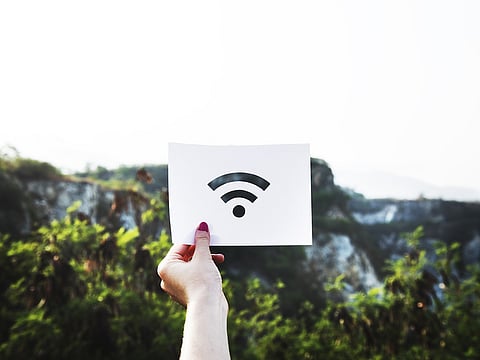WiFi for guests: What you need to know
Having strangers access your WiFi network exposes you to many risks and phishing attacks if you don’t take care

Dubai: Providing free Wi-Fi has become a strong selling point for most businesses. Giving Wi-Fi access to customers and guests can allow you to collect their data and gain priceless and useful insights on your clients and prospects. However, this comes with considerable risks. Having “strangers” access your Wi-Fi network exposes you to many risks and phishing attacks as they may accidentally or knowingly install malware, suspicious files etc. So before opening up your network, consider these measures for maximum security.
Segregate: Creating a separate network for your guests/clients will not only prevent the spread of an eventual malware, but will block users from accessing other information available on the network like company data, shared files and other sensitive information. Remember that separation will not guarantee 100 per cent protection. In fact, while it is true that it won’t be possible for unknown users to access your enterprise network, the risk still lies in sharing the same router with them.
Isolate: Even after separating networks, all devices and servers that are connected to the same router can communicate together and thus are considered part of the same network. Isolation will allow you to lock-down your network and block any communication between the devices connected to your guest network and the ones connected to your business network. Sounds good, but how do you isolate your guest Wi-Fi?
By moving the connection to the cloud, meaning all their activity will be confined to an entirely separate network. You will also benefit from better Wi-Fi network management in terms of bandwidth, usage, availabilities and accesses. Firewalls are the best and most secure way to protect your network’s data. While accessing the internet will remain easy for the guest, firewalls will make it difficult, or almost impossible for a hacker to access or spy on your network. Secure your network by filtering content and blocking access to risky websites like adult or gambling websites. It will also protect you and your guest users from accidentally downloading malware and viruses while also blocking any phishing websites. Limit bandwidth and network usage of guests to make sure your primary network does not get affected in any way.
- The author is partner and CSO at Geeks.ae


